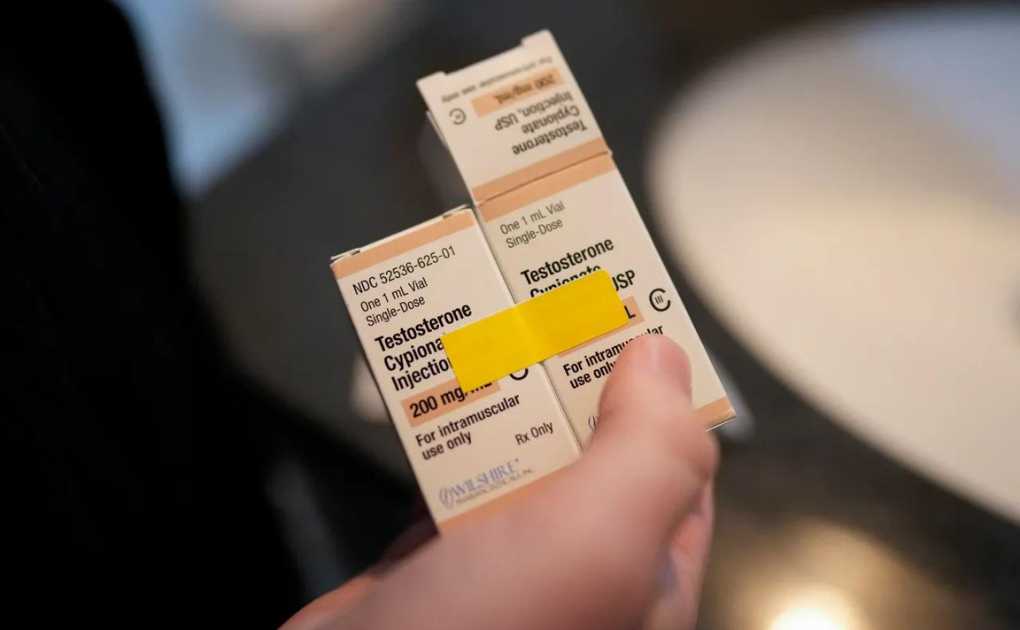
COLUMBUS, Ohio (WCMH) — Gov. Mike DeWine announced proposals this month that, if enacted, would make Ohio only the second state to restrict gender-affirming care for transgender adults.
The restrictions would require psychiatrists, endocrinologists and medical ethicists to have roles in creating facility-wide gender-affirming care plans for patients of all ages. Those under 21 would have to receive at least six months of mental health counseling before starting gender-affirming medication or surgery.
“The whole goal, candidly, was pretty simple, and that was to make sure that before anyone actually starts on medication that they have some counseling,” the governor said. “It’s abundantly clear that good medical practice, at the start, needs to include counseling.”
If the rules take effect, it would make Ohio the second state to restrict gender-affirming care for trans adults after Florida, which passed a law last year that requires trans adults to give consent for such care in person and with a physician present.
DeWine said the draft rules would ensure that trans patients are not receiving treatment from what he called “fly-by-night” clinics. The governor also signed an executive order to bar Ohioans from receiving gender transition surgery until they’re 18.
However, the ACLU of Ohio argues the governor’s proposed restrictions “could amount to a de facto ban” on care for trans youth and adults. The organization argues the measures would prohibit most primary care providers from providing hormone treatments to trans people of any age, enforce a list of cumbersome requirements and threaten to shut down care across the state.
“This is a dangerous escalation and unfounded effort to control Ohioans’ bodies, lives, and futures,” said the ACLU. “In the interest of protecting transgender people’s lives and their fundamental right to self-determination, these radical and life-threatening proposals must not be allowed to move forward.”
The governor noted the draft regulations are not set in stone, and must go through the rule-making process with several state panels and have an opportunity for public comment through Feb. 5. DeWine said his office is likely to propose revisions given an unprecedented number of comments have already been submitted.
Maria Bruno, Equality Ohio public policy director, said she has spoken to several trans adults who are worried that they may have to leave the state. While the proposals do not outlaw care for adults, Bruno argued they make receiving care so logistically difficult that they will prevent patients from pursuing services.
“If they could no longer receive medical care in the state, I do think you would see many transgender people forced to leave the state,” Bruno said.
DeWine’s proposals came after he vetoed House Bill 68, legislation to prohibit Ohio’s children’s hospitals from providing treatment like gender-reassignment surgery and hormone therapy to trans minors. The measure also revokes the Ohio High School Athletic Association’s trans-athlete policy and bars trans students from taking part in female athletics.
“I think parents should make these decisions and not the government, seems to me that’s what we believe in, is families making those difficult decisions for their children, not the government in Columbus,” said DeWine.
Rep. Gary Click (R-Vickery), the primary sponsor of H.B. 68, said the governor’s administrative orders “are no substitute for solid legislation.” Click said it was inappropriate for DeWine to “discard the hard and deliberative process of the General Assembly.”
The Ohio Senate voted to reverse DeWine’s decision, completing the legislative supermajority required to overcome a governor’s veto after the House also voted to reject the veto. The bill now goes into effect on April 24.
Senate Minority Leader Nickie Antonio (D-Lakewood) said the legislation is likely to be challenged in court, and argued the measure tells LGBTQ+ people “that they are suspect and that they don’t know what’s best for themselves.”
“I know there are people who are considering whether or not they can stay in the state, live their authentic lives safely and just be able to have quality of life as a result of House Bill 68 passing,” said Antonio.
The state’s children’s hospitals have served about 3,300 individuals throughout the past 10 years whose first appointment at a gender clinic took place when they were under the age of 18, according to the Ohio Children’s Hospital Association president. Of those 3,300 individuals, 7% were prescribed a puberty blocker and 35% were prescribed hormones.



